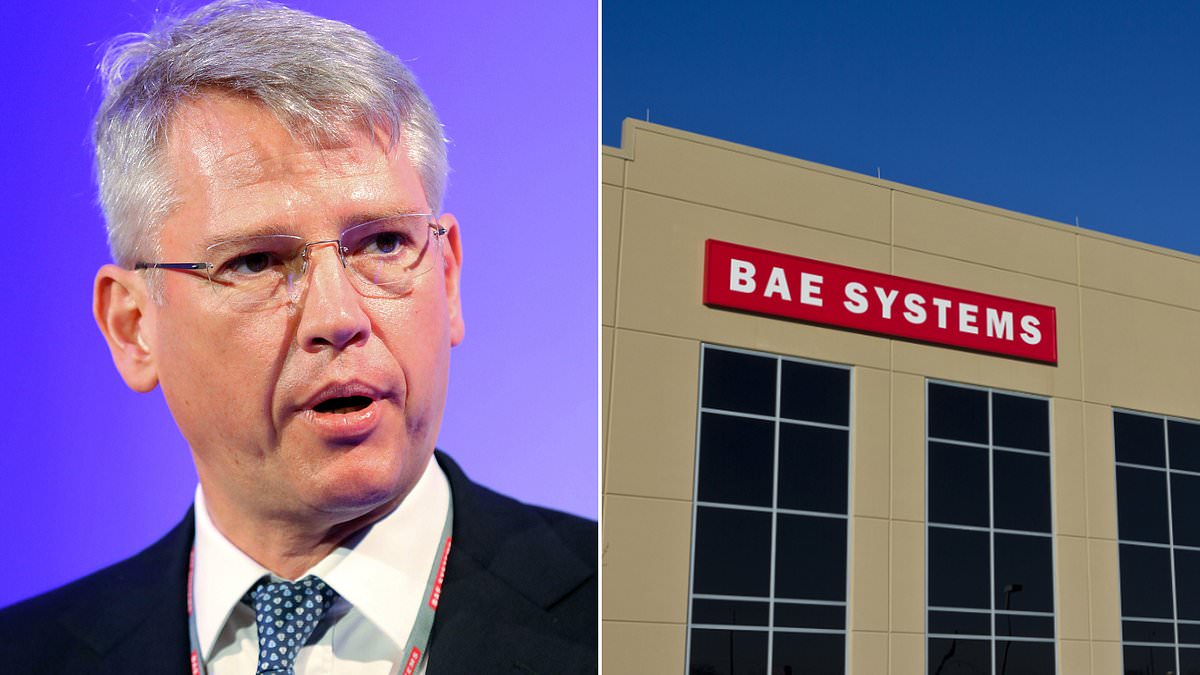By Charles Woodburn Editor
Against the backdrop of war in Europe, rising global threats and transformational changes in the nature of warfare unfolding at a rapid pace, the newly released Strategic Defence Review laid down a generational challenge to the nation: we must adapt.
Ministers have committed to increase defence spending to 2.5 per cent of GDP by 2027, with the aim of boosting it to 5 per cent by 2035 – and laid out priorities for how it should be spent.
As Britain’s largest defence company, we will play a key role in helping them deliver, along with our partners up and down the supply chain.
The defence industry is rarely mentioned as a point of British pride, but it is one of our great strengths as a country: an internationally competitive supply base which ensures the UK has direct access to the advanced equipment and technology that our armed forces need to keep us safe.
Without it, we would be beholden to others for essential capabilities.
Defence spending doesn’t just deliver for the UK’s armed forces and provide protection to the public. It is a hugely significant contributor to our nation’s economic prosperity.
As new, independent economic analysis shows, last year BAE Systems’ UK operations supported 159,600 jobs and added £13.7billion to the country’s GDP – equivalent to around £1 in every £200 of economic output.
We exported £3.6billion worth of defence and security products and services abroad and paid £3.6billion in tax.
That is a significant national boost, built and fuelled locally. In communities where our largest manufacturing sites are based, the impact is hard to miss.
In Barrow-in-Furness in Cumbria, some 12,300 people work on the design, manufacture, testing and production of the Royal Navy’s submarines.
A total of 4,500 people work for the company in Scotland, concentrated in and around our Glasgow shipyards where we are building the Royal Navy’s Type 26 frigates.
We’re delivering impact at smaller sites, too. Just last month the Defence Secretary opened a new £25million artillery factory in Sheffield, to produce the M777, the only combat-proven lightweight howitzer in the world, which will restore critical gun manufacturing capability to the UK and create 200 new skilled jobs.
These investments don’t only mean jobs and facilities for the short term, they contribute to the long-term development of technology and skills.
By the end of 2025, BAE Systems will have invested over £1bn in education and skills since the start of the decade.
This year alone, we’re recruiting for more than 2,400 new apprentice and graduate roles across the UK – the next generation of engineers, technicians and specialists who will shape the future of defence.
This investment in skills extends far beyond big companies like ours. We work with almost 6,000 companies in our supply chain, including small innovative companies and start-ups which offer equally exciting prospects to contribute to the UK’s national security endeavour.
For example, our partner company Infleqtion, an Oxford-based firm, produces a quantum-based device to provide navigation as an alternative to GPS signals which can be jammed.
Significantly, our sites are both nation-wide and often focused in areas which have experienced manufacturing decline.
More than 40% of our workforce live in the bottom fifth of the UK’s most deprived areas so we disproportionately benefit the communities which need it most.
This is what it means when we talk about the UK’s “defence dividend”. As a country, we are investing in defence to ensure we can protect ourselves in an uncertain world.
And collectively we reap the broader benefits of investing taxpayers’ money in a world-class defence industry of which I am proud to be part.
